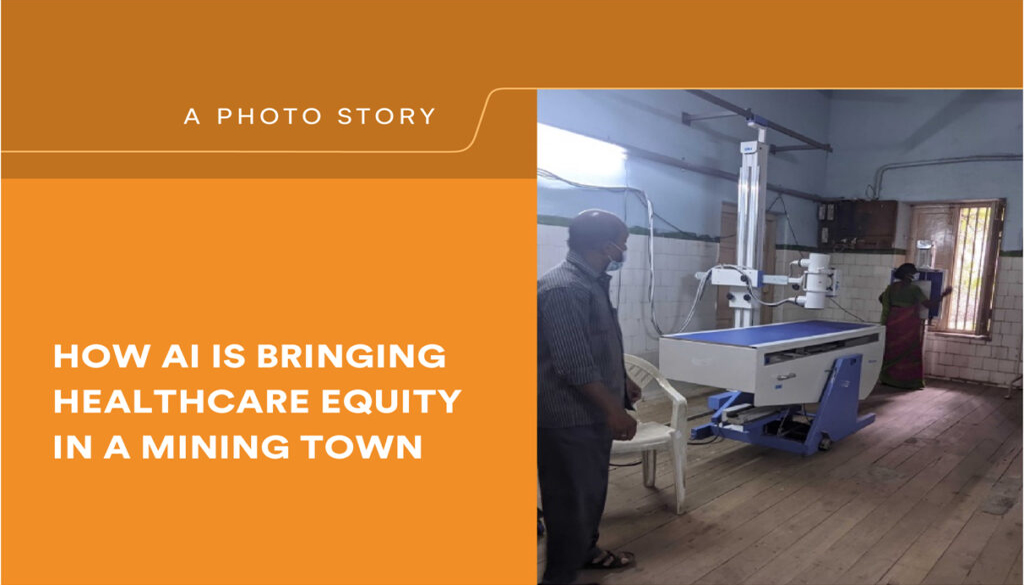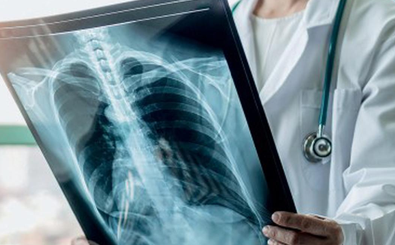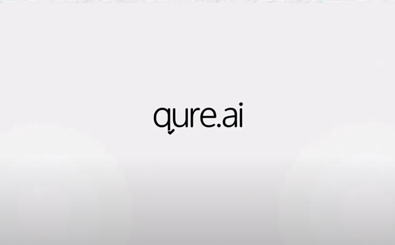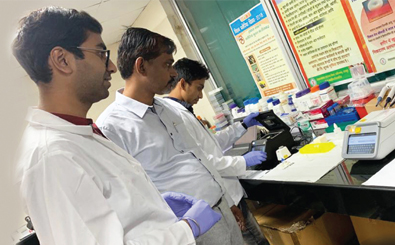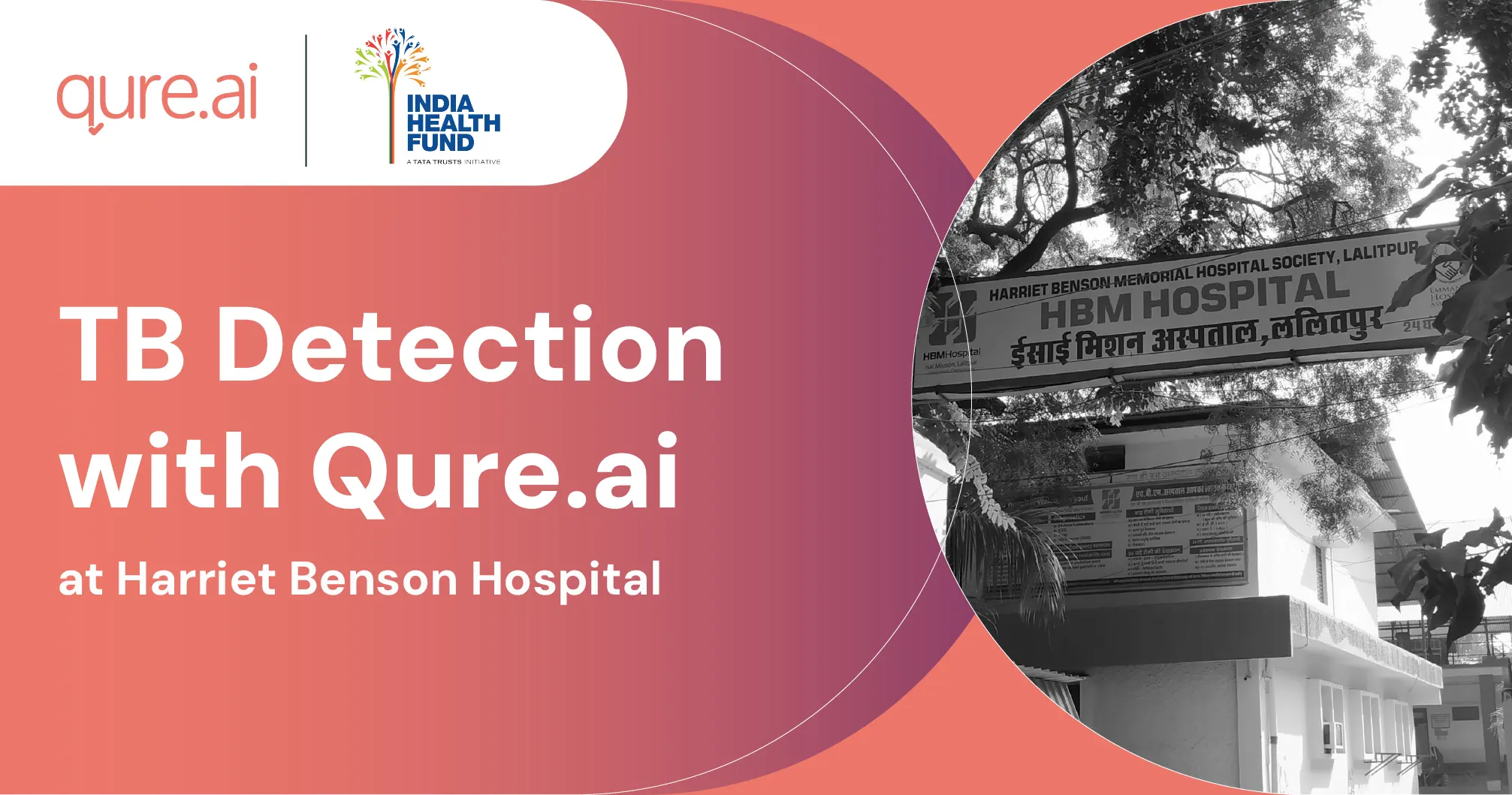Using artificial intelligence to improve diagnosis of TB & COVID-19, and other lung ailments
Problem
The widespread use of analog x-rays for the diagnosis of TB in low resource settings results in long lead times for diagnosis & initiation of treatment, and several cases going undiagnosed due to the lack of trained radiologists & clinicians at many locations. In the absence of an effective screening tool, the burden on confirmatory tests is higher leading to increased costs of testing and turnaround time and more false positives.

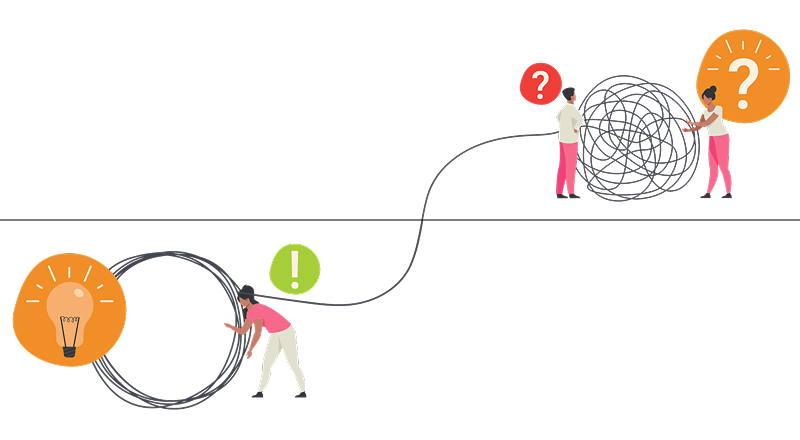

Solution
A smartphone based application, which uses novel AI algorithm qXR to screen patients for TB by analyzing chest x-ray of a patient, with minimal training required for a technician. A smartphone captures an analog chest x-ray and Qure.ai algorithms analyze the x-ray to allow faster screening and diagnosis of patients for TB. This is a breakthrough in improving the identification of missed cases of TB due to the non-availability of clinicians. It will also help to reduce the number of confirmatory microbiological tests required, enabling better resource utilization and also reduce the number of false positive tests. The algorithm has also been adapted to identify lung damage consistent with COVID-19, using the same platform.
IMPACT
Since the launch in 2020, the IHF-supported pilot of qXR has scaled to more than 100 hospitals across 17 Indian states, a majority of which include primary and secondary government facilities and charitable trust/ mission run hospitals. Together, as of today, qXR has screened over 75,000 individuals for TB.
- With qXR, there has been a reduction in diagnosis turnaround time, with referral for confirmatory diagnosis becoming possible within 2 mins. A comparat ive analysis of the treatment enrolment time before and after the software was deployed in a tertiary care centre in Rajasthan showed a 2.5 day reduction in treatment enrolment time, from 5.7 days to 3.2 days after introduction of qXR
- Owing to its high sensitivity (more than 90%), the use of qXR has reduced the requirement of follow-on testing by 50%
- qXR’s deployment has led to 20% increase in identification of incidental cases in Mumbai’s seven peripheral hospitals
- qXR has been independently evaluated by the WHO against a library of digital radiographs and associated clinical data, based on which it has been included as part of WHO’s updated guidelines on TB screening
- qXR was adapted for triaging COVID-19 along with TB. IHF facilitated the fundraising and deployment of the qXR solution for COVID-19 with the Municipal Corporation of Greater Mumbai (MCGM), bolstering its COVID-19 response efforts across 15 sites in Mumbai. This joint initiative resulted in processing of 25000 chest X-rays, and reduction in COVID-19 detection time to under a minute.
“Qure.ai and the India Health Fund (IHF) have collaborated to scale up the use of advanced technologies like Artificial Intelligence for Tuberculosis (TB) screening and to develop an affordable point-of-care system to digitize analog Chest X-ray films. With IHF’s support, Qure has enabled numerous healthcare centres and PHCs to embrace technology and optimise TB screening with cost-effective and minimal infrastructure. Together, we are empowering Indian healthcare providers to bridge healthcare delivery gaps across rural-urban belts.”


